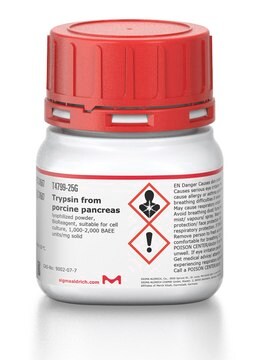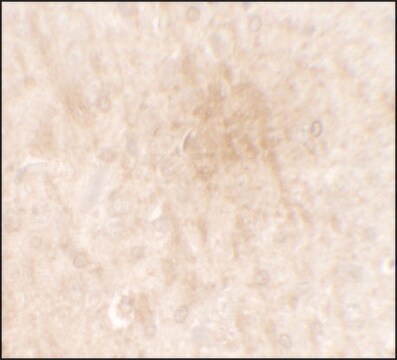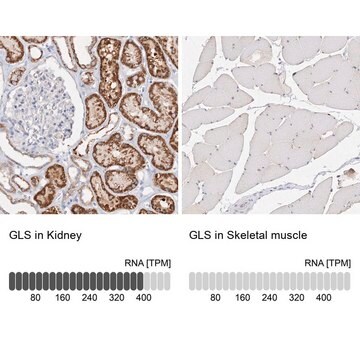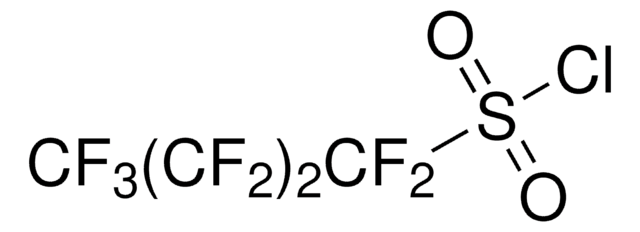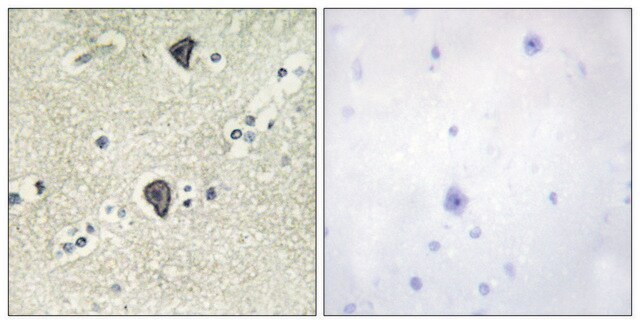추천 제품
생물학적 소스
rabbit
결합
unconjugated
항체 형태
affinity isolated antibody
항체 생산 유형
primary antibodies
클론
polyclonal
형태
buffered aqueous solution
분자량
antigen 110-120 kDa (doublet)
종 반응성
human
기술
immunohistochemistry (formalin-fixed, paraffin-embedded sections): 1:250 using Trypsin-digested, human and animal tissue sections
western blot: 1:1,000 using whole cell extract of transfected 293T cells expressing recombinant human FGFR-3
UniProt 수납 번호
배송 상태
dry ice
저장 온도
−20°C
타겟 번역 후 변형
unmodified
유전자 정보
human ... FGFR3(2261)
일반 설명
특이성
면역원
애플리케이션
Immunohistochemistry (1 paper)
Western Blotting (1 paper)
생화학적/생리학적 작용
물리적 형태
면책조항
적합한 제품을 찾을 수 없으신가요?
당사의 제품 선택기 도구.을(를) 시도해 보세요.
Storage Class Code
10 - Combustible liquids
WGK
WGK 2
Flash Point (°F)
Not applicable
Flash Point (°C)
Not applicable
개인 보호 장비
Eyeshields, Gloves, multi-purpose combination respirator cartridge (US)
시험 성적서(COA)
제품의 로트/배치 번호를 입력하여 시험 성적서(COA)을 검색하십시오. 로트 및 배치 번호는 제품 라벨에 있는 ‘로트’ 또는 ‘배치’라는 용어 뒤에서 찾을 수 있습니다.
자사의 과학자팀은 생명 과학, 재료 과학, 화학 합성, 크로마토그래피, 분석 및 기타 많은 영역을 포함한 모든 과학 분야에 경험이 있습니다..
고객지원팀으로 연락바랍니다.



